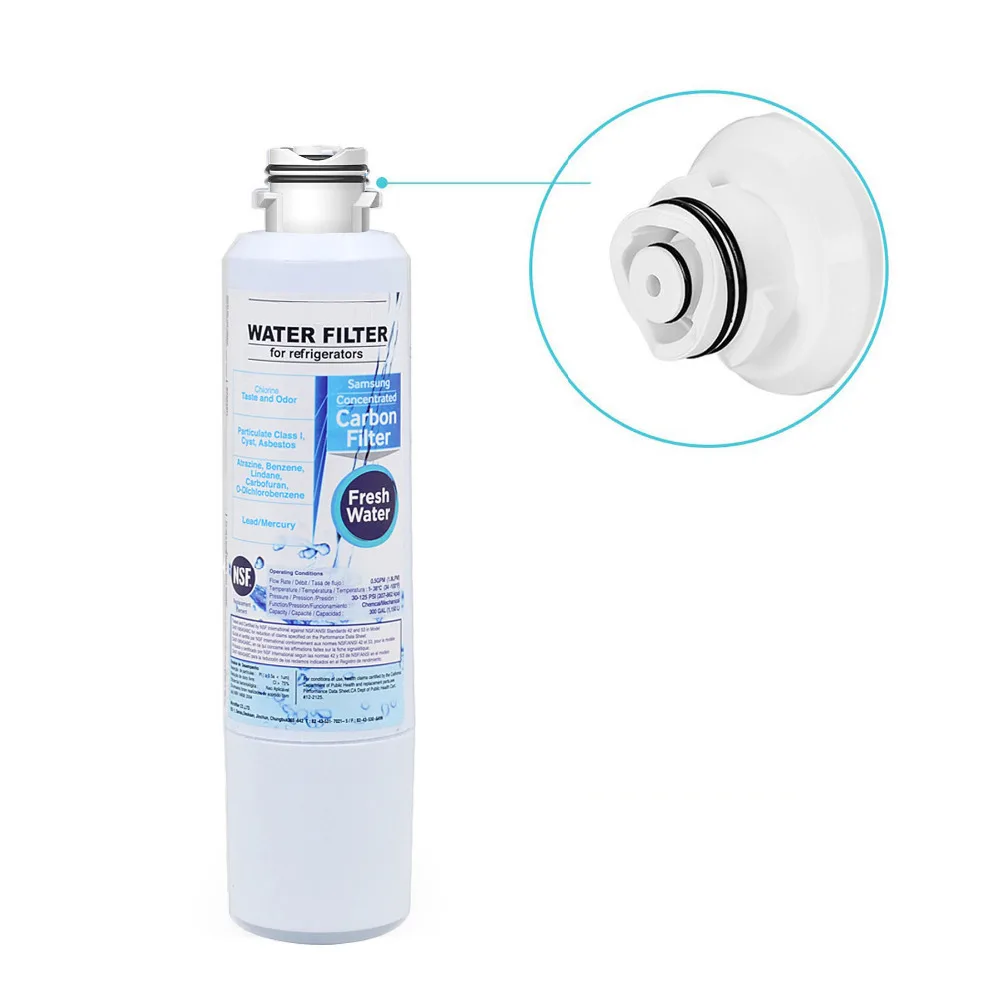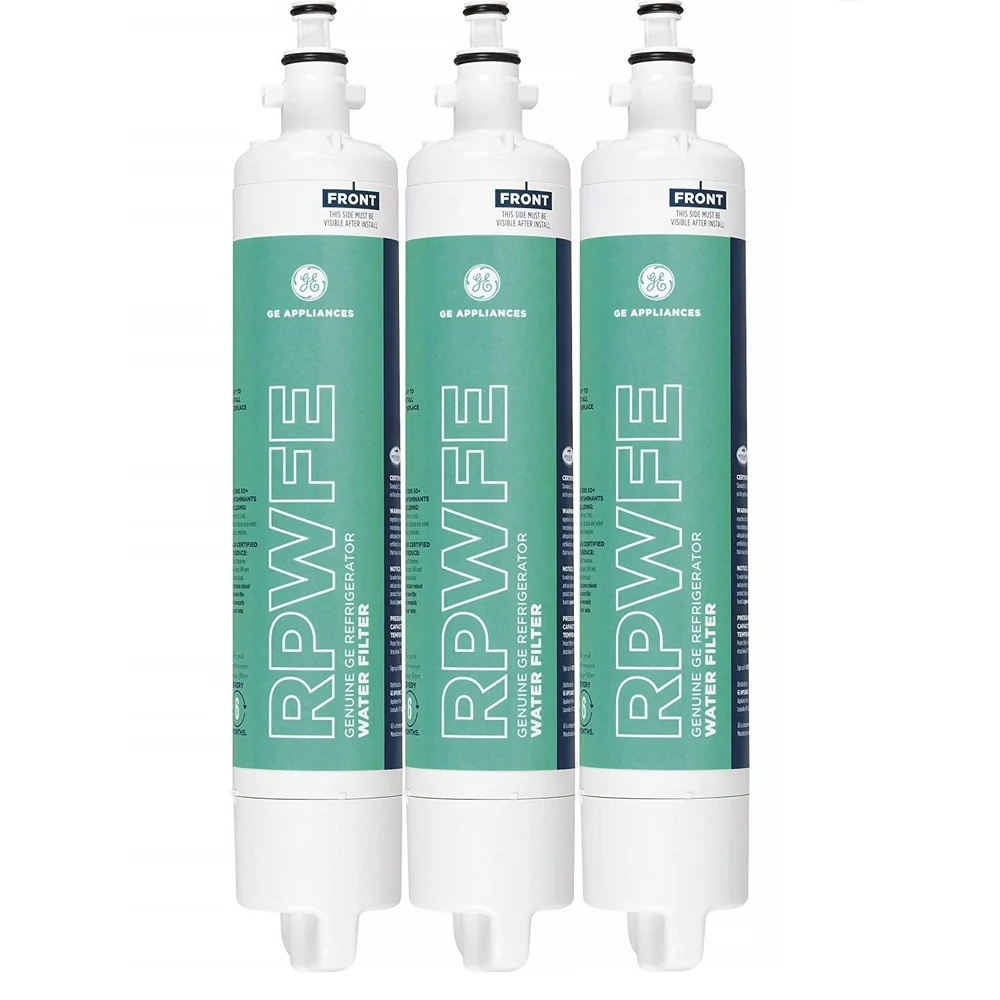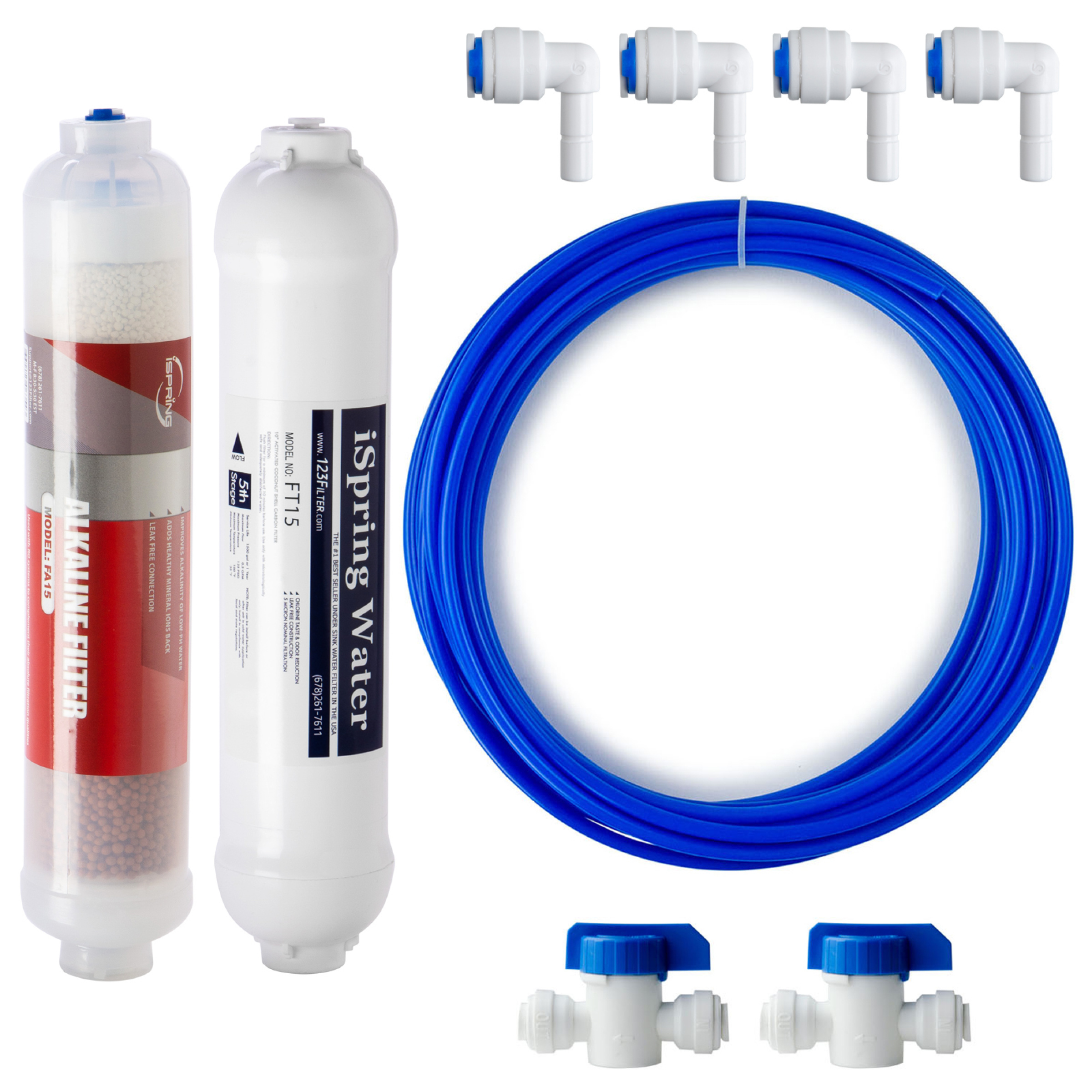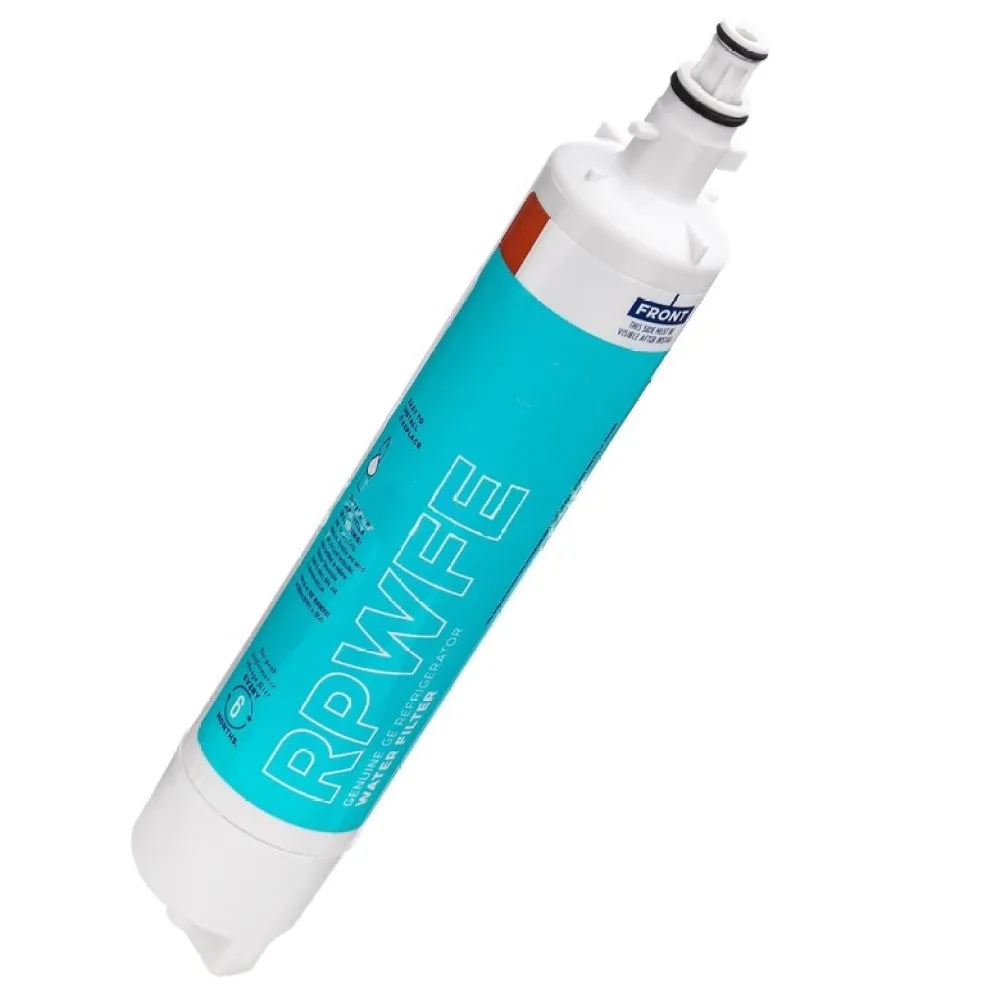A refrigerator water filter plays a vital role in delivering clean, fresh-tasting water straight from your kitchen. Not only does it remove contaminants, but it also improves the taste and odor of both water and ice. Because tap water can contain chlorine, sediment, heavy metals, and other impurities, using a refrigerator water filter ensures that what you drink is as safe as possible. Moreover, many modern refrigerators come equipped with built-in filtration systems, making access to purified water effortless.
Over time, these filters become less effective. Therefore, regular replacement is essential for consistent performance. In addition, different models use different filter types. As a result, choosing the right one matters for compatibility and efficiency. Furthermore, understanding how they work helps users make informed decisions. Since clean drinking water impacts health and daily convenience, investing in a quality refrigerator water filter is a smart move.
How to choose refrigerator water filter by model 2025? This article covers everything you need to know about refrigerator water filters. We’ll explore how they function, why they matter, how often to replace them, top brands, installation tips, and common questions. By the end, you’ll feel confident maintaining your system and protecting your household’s water quality.
 How a Water Filter Works to Purify Your Water
How a Water Filter Works to Purify Your Water
Understanding the inner workings of a refrigerator water filter helps you appreciate its value. First, water enters the filter through a small inlet connected to your home’s main supply. Then, it passes through a series of filtration stages designed to trap harmful particles.
The most common type uses activated carbon. This material has a large surface area that attracts and holds contaminants. For example, it effectively captures chlorine, which causes unpleasant taste and smell. It also reduces volatile organic compounds (VOCs) and some pesticides.
Another key feature is mechanical filtration. This process blocks larger particles like sediment, rust, and sand. These impurities often come from aging pipes or municipal water systems. By removing them, the filter prevents buildup in your ice maker and dispenser.
Some advanced models include additional technologies. For instance, certain filters use ion exchange resin to reduce lead and mercury. Others incorporate microfiltration membranes to catch even smaller particles. As a result, water comes out noticeably cleaner and safer.
Moreover, the filtration happens automatically. You don’t need to press buttons or wait—every glass of water or batch of ice goes through the system. Consequently, convenience and safety go hand in hand.
It’s important to note that not all filters remove every contaminant. Most do not eliminate fluoride, nitrates, or dissolved minerals like calcium. Therefore, if your water has high levels of these, you may need extra treatment. However, for everyday improvement in taste and safety, a standard refrigerator water filter performs exceptionally well.
 Why Using a Water Filter Is Essential for Health and Taste
Why Using a Water Filter Is Essential for Health and Taste
There are several compelling reasons to use a refrigerator water filter. First and foremost, it protects your health. Tap water may contain bacteria, chemicals, or heavy metals depending on your location. Although municipal supplies are regulated, aging infrastructure can introduce risks. A good refrigerator water filter reduces exposure to these hazards.
Second, it enhances flavor. Chlorine is commonly used to disinfect water, but it leaves an unpleasant aftertaste. Many people avoid drinking enough water simply because of this. By removing chlorine and other odor-causing agents, the filter makes water more enjoyable. As a result, you and your family may drink more, improving hydration.
Third, it safeguards your appliance. Over time, unfiltered water leads to mineral buildup in the ice maker and water lines. This can cause clogs, leaks, or reduced performance. Using a refrigerator water filter prevents such issues, extending the life of your fridge.
Additionally, filtered water produces clearer, better-tasting ice. Ice made from untreated water often has a cloudy appearance and odd smell. Once you switch to filtered water, the difference is immediate. Guests will notice the improvement, especially when serving drinks.
Another benefit is environmental impact. Bottled water creates plastic waste and requires transportation. By relying on your refrigerator water filter, you reduce single-use plastic consumption. Therefore, you contribute to a greener planet.
Finally, cost savings add up over time. While filters require periodic replacement, they are far cheaper than buying bottled water weekly. In fact, the average household saves hundreds of dollars per year. Hence, installing and maintaining a refrigerator water filter is both economical and responsible.
Types of Water Filters and Which One Fits Your Model
Not all refrigerator water filters are the same. Manufacturers design specific filters for different fridge models and brands. Therefore, identifying the correct type is crucial for proper function.
Twist-In Filters
Twist-in filters are among the most common. They install by turning the filter clockwise into a housing unit. First, locate the filter compartment—usually in the grille at the bottom or inside the fridge. Then, remove the old filter by twisting it counterclockwise. Next, insert the new one and turn until it locks. This process takes less than a minute.
These filters are popular because they’re easy to replace. Brands like GE, Whirlpool, and Samsung use this system. Additionally, many third-party options are available, offering lower prices without sacrificing performance.
Slide-In Filters
Slide-in filters push straight into place without twisting. You simply align the filter and slide it into the slot. A latch or clip secures it. To remove, press a release button and pull it out.
This style is common in French door and side-by-side refrigerators. LG and KitchenAid often use slide-in designs. They offer a sleek look with minimal protrusion. However, ensure the replacement matches the exact model number.
Cartridge Filters
Cartridge-style filters require opening a cover before insertion. These are typically found in higher-end models. First, open the access panel. Then, remove the old cartridge and insert the new one. Finally, close the panel securely.
Sub-Zero and Bosch use this method in some units. It allows for larger filter media, increasing capacity and lifespan. On the downside, replacements can be more expensive.
Regardless of type, always check your fridge manual or manufacturer website. Enter your model number to find compatible filters. Using the wrong one may result in leaks or poor filtration.
 How Often Should You Replace Your Water Filter?
How Often Should You Replace Your Water Filter?
Replacing your refrigerator water filter on schedule is critical. Over time, the filter becomes saturated with contaminants. When this happens, it can no longer clean the water effectively. Worse, it may start releasing trapped particles back into the flow.
Most manufacturers recommend changing the filter every six months. However, this depends on usage and water quality. If you live in an area with hard water or high sediment levels, you may need to replace it every three to four months.
Your fridge might have a filter indicator light. This alerts you when it’s time for a change. Nevertheless, don’t rely solely on the light. Some systems estimate usage based on time, not actual water volume. Therefore, heavy households may need earlier replacements.
Signs it’s time to replace the filter include:
- Noticeable change in water taste or smell
- Slower water flow from the dispenser
- Cloudy or off-tasting ice
- Visible particles in the water
If any of these occur, act immediately. Continuing to use an expired filter defeats its purpose. Moreover, it could damage internal components.
To stay on track, mark your calendar or set a phone reminder. Buy replacements in advance to avoid running out. Many online retailers offer subscription services that deliver new filters automatically. This ensures you never miss a change.
Remember, regular maintenance protects your health and your appliance. A fresh refrigerator water filter keeps your water tasting great and your system running smoothly.
Top Brands and Where to Buy Reliable Water Filters
Choosing a trusted brand ensures quality and compatibility. Below are leading manufacturers and where to purchase their products.
OEM Filters (Original Equipment Manufacturer)
OEM filters come directly from your fridge’s brand. For example, Samsung, LG, and GE sell official filters for their models. These guarantee perfect fit and performance. However, they tend to be more expensive.
You can buy them through the manufacturer’s website, authorized dealers, or major retailers like Home Depot and Lowe’s. While reliable, consider checking reviews for consistency.
Aftermarket Filters
Aftermarket brands like EveryDrop, AquaPure, and Puroman offer compatible alternatives. They meet or exceed OEM standards at lower prices. Many are NSF-certified, meaning they’ve been independently tested.
Amazon, Walmart, and Target carry a wide selection. Look for filters labeled “compatible with” your model. Read customer feedback to confirm reliability.
Specialty Performance Filters
Some brands focus on enhanced filtration. For example, Express Water and FilterTime offer filters with extended lifespans or improved contaminant reduction. These may include extra layers for lead or cyst removal.
They’re ideal if your water source is questionable. Always verify certification labels like NSF/ANSI 42 and 53. These confirm the filter meets industry standards for aesthetic and health-related contaminants.
When shopping, compare prices across platforms. Subscribe-and-save options often provide discounts. Just ensure the seller is reputable to avoid counterfeits.
 Frequently Asked Questions About the Water Filter
Frequently Asked Questions About the Water Filter
Many users have recurring questions about their refrigerator water filter. Here are the most common ones answered clearly.
How do I know which filter fits my fridge?
Check your refrigerator’s user manual or visit the manufacturer’s website. Enter your model number to see compatible filters.
Can I run my fridge without a water filter?
Some models allow it by installing a bypass plug. However, water and ice will be unfiltered. Check your manual before removing the filter.
Do refrigerator water filters remove bacteria?
Most standard filters do not remove bacteria or viruses. They target chemicals, chlorine, and sediment. For microbial protection, consider additional purification.
Why does my water taste strange after changing the filter?
Air in the line or loose carbon particles can cause a temporary odd taste. Run two to three gallons of water to flush the system.
Are generic filters as good as name-brand ones?
Many are just as effective, especially if NSF-certified. Compare specs and reviews to ensure quality.
Can I recycle used refrigerator water filters?
Some programs, like Brita’s partnership with TerraCycle, accept used filters. Check with the manufacturer for recycling options.
What happens if I forget to change the filter?
Water quality declines. You may notice bad taste, odors, or slower flow. Long-term neglect can harm the dispenser system.
 Final Thoughts: Why a Quality Water Filter Is Worth the Investment
Final Thoughts: Why a Quality Water Filter Is Worth the Investment
How to install refrigerator water filter in 2025? In summary, a refrigerator water filter is a small component with a big impact. It ensures your drinking water is clean, safe, and great-tasting. Moreover, it protects your appliance and supports eco-friendly habits. Whether you have a basic model or a high-end fridge, using a properly maintained refrigerator water filter is essential.
Because water quality varies by region, having a reliable filtration system adds peace of mind. It removes common impurities and enhances daily convenience. In addition, regular replacement keeps performance consistent. Ultimately, this simple upgrade contributes to better health and long-term savings.
Therefore, if you haven’t prioritized your refrigerator water filter, now is the time. Choose the right type, stick to a replacement schedule, and enjoy the benefits of pure water on demand. After all, clean water shouldn’t be a luxury—it should be the standard. And the refrigerator water filter makes that possible.